Bunnings denies ‘slave’ allegations

Furious senators have lashed out at Bunnings executives after they couldn’t answer questions about the nature of their supplier agreements following allegations the hardware giant was forcing plant growers into entering unfair contracts.
A nursery manager told a hearing into supermarket power last week the Wesfarmers owned chain made her feel like a “slave” after it pulled out of a supplier purchase at the last minute, costing her business $2.3m in forecast revenue.
Bunning’s category manager Belinda Raker told Monday’s hearing the agreements the retailer had with suppliers did not require a set commitment and stressed the business aimed to maintain longstanding relationships with its 250 suppliers.
“We have to have really long-term, viable supplier relations here. We also don’t have any exclusive arrangements with suppliers,” Ms Raker told senators.
“Many of our growers have the ability to supply anybody in the market as well, we are not an exclusive retailer for them.”


But when the executive could not answer how many suppliers were on minimum order supplier agreements, Nationals senator Ross Caddell lost his cool.
“I’m not hearing a lot of facts – I’m hearing a lot of opinions and clever words,” he exclaimed.
“No one has said anything good about Bunning’s in the green life supply. Why is no one coming to us and saying you are good corporate citizens?”
Bunning’s ethical sourcing manager Laura Gaspert argued that the chain worked “incredibly hard” to treat its suppliers with respect.
The Bunnings chief executive Michael Schneider did not appear, raising eyebrows.
Ms Gaspert says she and Ms Rakers were “best placed” to front the committee.
“We work with our suppliers daily, we have interactions with them all the time and more clarity around how Bunnings actually does business with our suppliers,” she said.
INDUSTRY INSIDER DETAILS SUPERMARKETS ‘PLAYBOOK ‘
An industry whistleblower has blown the lid open on the shelf pricing tactics supermarket chains are using to the detriment of consumers and to muscle out food suppliers.
Abdel Badoura told Monday’s inquiry into supermarket behaviour that he witnessed “first-hand” Coles and Woolworths’ market manipulation after a decade of sitting in on price negotiations with suppliers.
He said the big chains exploited their duopoly to push around suppliers seeking a price increase on their products.
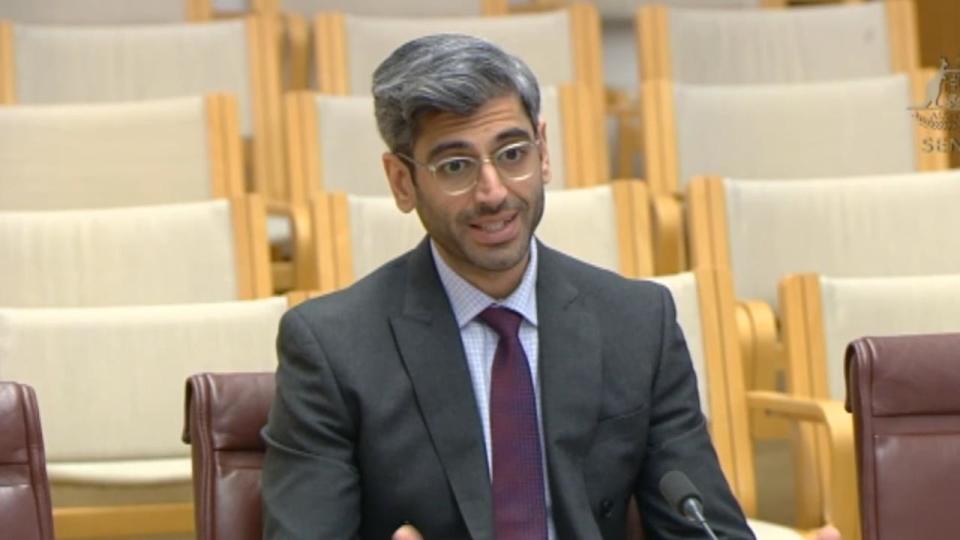
“Coles and Woolworths are running risk-free businesses, they are propped up by suppliers who are paying for the majority of their expenses, with the Australian public being overcharged at every step,” Mr Badoura told senators.
“They have gotten away with this for years due to the lack of competition in the market and their market power abuse.
“As a result, you consistently see high recommended prices compared to other countries on the same products.”
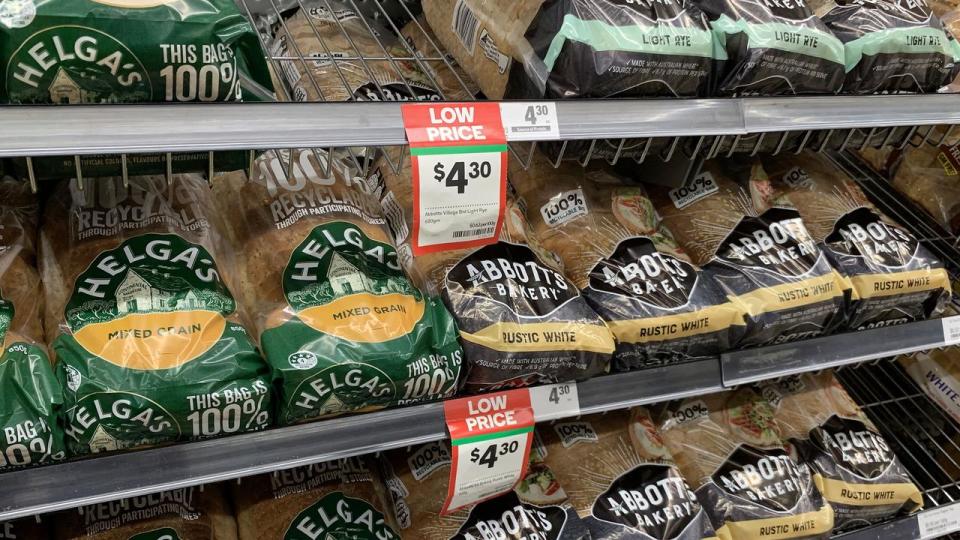
Mr Badoura said in his experience, Coles and Woolworths would either reject or partially accept price increases and then determine a “gap” used to get suppliers to invest more money into their business.
“So in circumstances where a supplier has indicated their costs have increased, the supermarkets then seek to extract more money, ultimately compounding price increases for customers,” he said.
“Third, supermarkets will play games and delay until the last minute, at which they finally align on some form of payment and incremental investment from the supplier in the form of promotions, margins or advertising support.
“Because Coles and Woolworths set margin percentage expectations, they know that with every price increase they stand to make millions.”
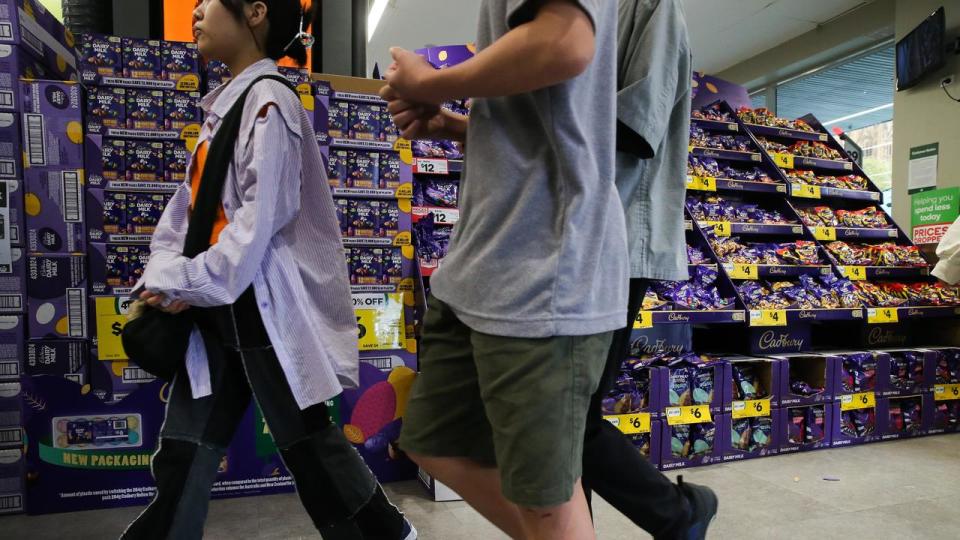
WOOLIES STAFF REVEAL ALL
Supermarket workers have described the escalating rates of violence they have experienced while working for Australia’s two largest supermarkets during a cost-of-living crisis.
Union delegate Josh Reinecker, who has worked for Woolworths for 22 years, told the committee that he had seen acts of violence at his store rise sharply in the past year.
He said this had placed heavy stress on staff who were nervous when dealing with customers because they didn’t know what to expect.
“We’ve had shop front windows smashed, glass landing near children in prams, we’ve had that same alleged perpetrator come into the store two days later and punch a staff member,” Mr Reinecker told the committee.
“We’ve had an incident where a man wasn’t happy at a checkout, spit on my co-worker, and then there was an altercation with customers.”
Mr Reinecker said customers were inciting abuse against staff for many reasons, ranging from the prices of food specials, to the selling of public holiday merchandise.
“I saw someone else recently complain about Anzac Day. That has a flow-on effect to us. They can use it for political gain – but we are the ones who have to cop it,” he told senators.
ALLAN FELS SCOFFS AT EMERSON REPORT
Former ACCC head Allan Fels told Monday’s hearing that it would be sensible for Australia to adopt divestiture laws similar to the US to reduce harms to consumers and smaller businesses.
A separate review on supermarkets rubbished calls for divestiture powers, which would force supermarkets to sell stores if they had too much market share.
In his interim report, former Labor minister Craig Emerson argued that divestiture powers would trigger job losses and intensify market concentration.
Professor Fels blasted Dr Craig Emerson’s interim report as “lacking depth” and said deregulation would rather expand markets and employment figures, but said he supported a mandatory code of conduct.
“In Australia we’ve broken up gas and electricity and some other public enterprises and that’s led to an expansion,” he said.
“I was surprised at him (Dr Emerson) commenting on divestiture – I don’t know if he did any study on it whatsoever. He just picked up sort of line one of the standard big retailer response without really going into it with any depth.”

Professor Fels said a separate commission should be set up to investigate rises in grocery prices to allow the competition watchdog to focus on its crackdown on bad business practices.
The ACCC is conducting an inquiry into high supermarket prices and will hand down an interim report in August.
Professor Fels argued that an independent commission would encourage a deeper look into the way prices were being determined by the larger chains and push food costs down in the long term.
“It’s better to start with the real problem, the prices, and work backwards to restriction and competition,” he said.
“That links with my idea to have a competition and prices, and perhaps regulation, commissioner because apart from looking at restriction on competition, brought about by government laws and actions, you should also look at the many areas in the private sector where they are questions about pricing behaviour.”
RETAIL WORKERS TO TESTIFY
Later, the Retail and Fast Food Workers Union will testify after alleging Coles and Woolworths operated in a “duopoly”, or a market dominated by two giant players, and its members have suffered as a result.
“They (union supermarket workers) feel the effect of price gouging every day in two critical ways,” the union stated in its submission to the inquiry.
“Firstly, they simply cannot afford the food and groceries they sell in their workplaces.
“Secondly, they are the public face to irate consumers who exact their disquiet onto workers.
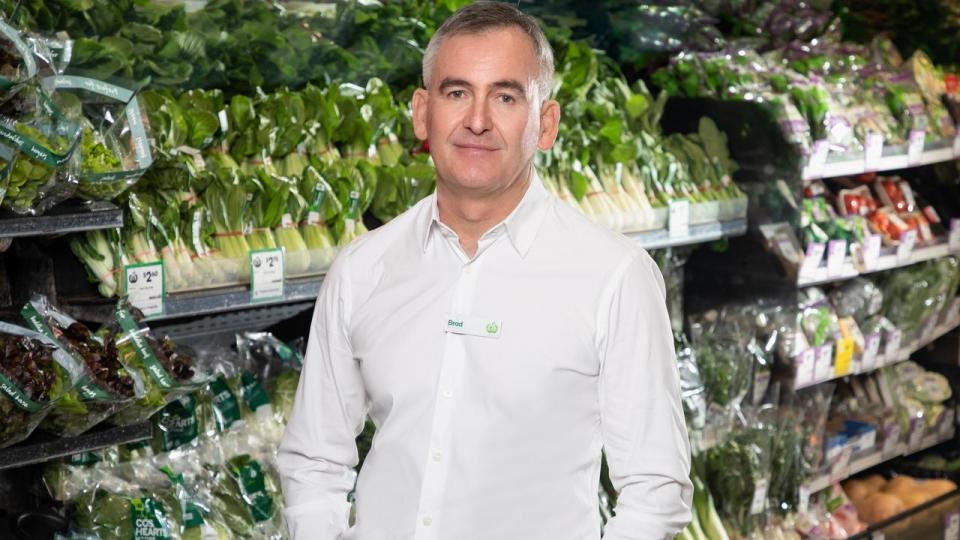
“When an aggrieved consumer decides to give a spray to Coles or Woolworths for gouging them at the checkout, it is not the CEO, CFO, hardened executive or managing director who is being abused.
“It is a mum, dad, child, sibling, young worker, older worker, poverty wage worker, insecure worker who is facing the brunt of the abuse.”
WOOLIES AND COLES TO APPEAR ON TUESDAY
Mr Banducci will appear before the committee on Tuesday morning and reject allegations Woolworths has engaged in price gouging practices.
“We are part of a highly competitive and innovative grocery sector,” the company said in its submission to the inquiry.
“In 2008, the Australian Competition and Consumer Commission determined that the industry was ‘workably competitive’ and now it is much more so.
“With the arrival of three of the world’s biggest and most competitive retailers (Aldi, Costco and Amazon) in Australia, consumers have even more choice.
“Being price competitive is critical in trying to win our customers’ shopping basket.”
Woolworths said food inflation had been driven by cost increases “from our supplier partners and cyclical impacts in fresh food markets.”
Coles Group will also appear on Tuesday, with the retailer expected to argue grocery price increases have flowed from increasing supplier and input costs.

“A key driver of supermarket price increases has been cost price increase requests from our suppliers and farmers,” the company said in its submissions.
“Coles received an average of over 70 requests per week from suppliers and farmers in financial year 2022 and financial year 2023, almost double the level of financial year 2021 requests.
“Coles is also impacted by the increased cost of doing business with increases in energy, labour, logistics, packaging, interest and tax costs.”
Bunnings, a star business of retail conglomerate Wesfarmers, will appear on Monday afternoon and deny allegations it exploits its position in the market to gouge prices.
COST OF LIVING DEMANDS
Community anger over rising grocery bills has escalated in recent months as shoppers navigate a tightening cost-of-living squeeze.
A Finder survey from February suggested some 42 per cent of households, or an estimated 3.9 million, said their grocery bill was one of their chief financial stressors, a 26 per cent increase, or a bump of 1.5 million new households from just two years ago.
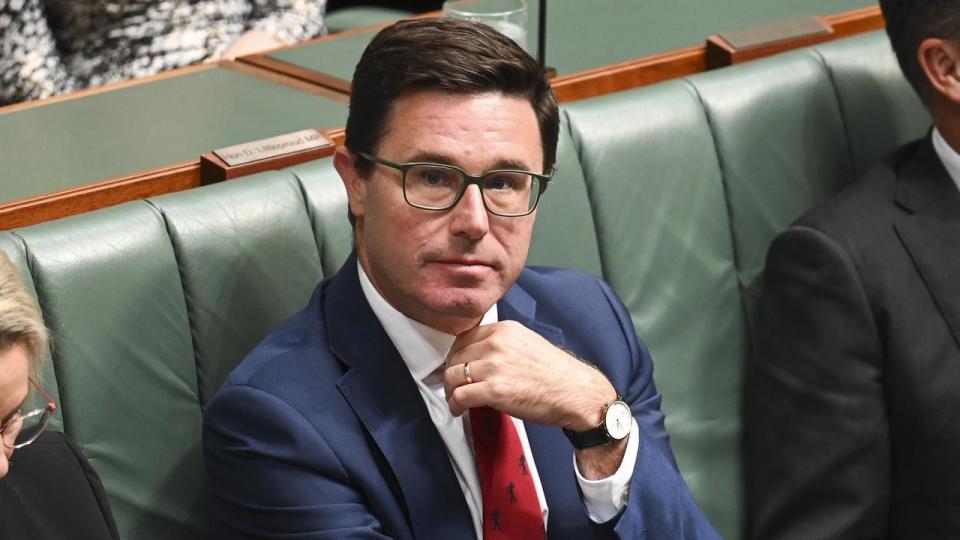
Moreover, nearly all Australians are now pursuing strategies to save money at the checkout, with 92 per cent of Australians altering their shopping habits, according to a survey of 1002 respondents.
More than half of shoppers now bulk buy kitchen staples to cut costs and 61 per cent, or some 5.1 million households, visit multiple grocery stores to secure the best prices.
The average weekly spend on groceries is now about $188.
The issue has stormed to the centre of Australian politics, with Nationals Leader David Littleproud and the Greens flagging the possibility of breaking up the major supermarkets to reduce overall market power.
Next to the supermarkets at the centre of the storm, the Senate is also hearing from the Australian Food and Grocery Council, The Australian Dairy Products Federation, the ACCC, the Treasury Department and the Department of Agriculture, Fisheries and Forestry on Monday.

 Yahoo Finance
Yahoo Finance 